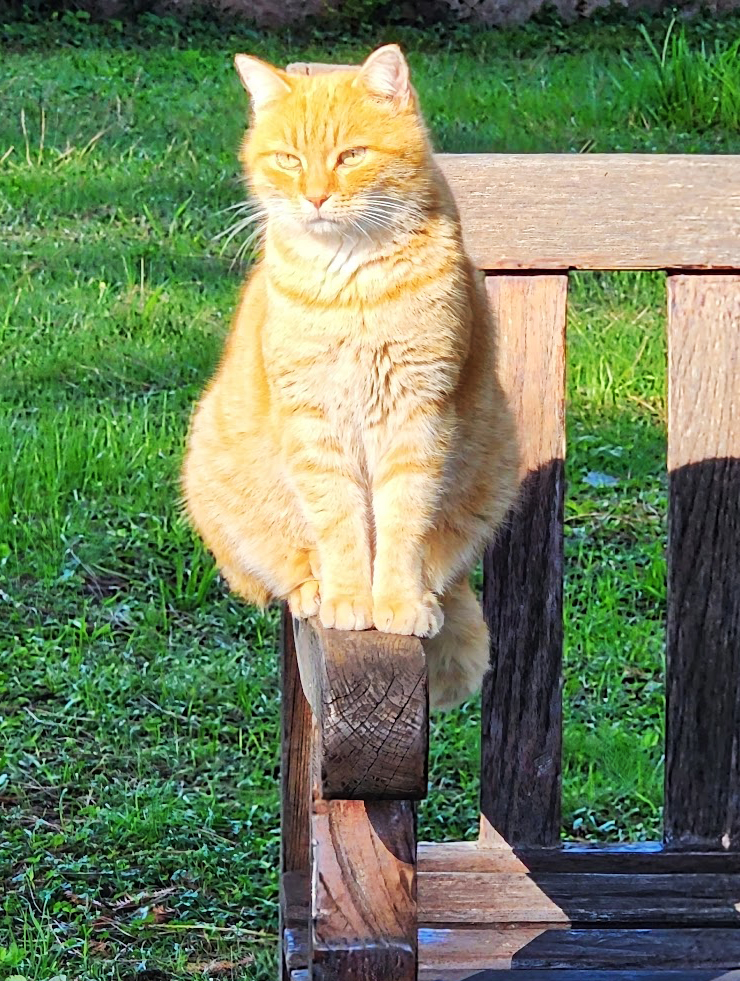MIAMI – Yesterday, an article published in the Journal of the American Medical Association (JAMA) caught TWH’s attention. While the article was not specifically Pagan in focus, it highlighted an issue of significant concern to our community: the profound lack of infrastructure for elder care, particularly care that is religiously sensitive and appropriate. Many established religious communities have built extensive systems to support their elderly members, but Pagans often find themselves lacking such networks.
An aspect of the isolation challenge was highlighted in a 2007 dissertation by Dr. Valarie C. Cascadden, which explored the isolation experienced by solitary Pagans. The decision to keep beliefs private often leads to deeper loneliness, especially in old age, when physical and social limitations can compound this isolation.
The JAMA study examines the prevalence of loneliness and social isolation among U.S. adults aged 50 to 80, utilizing data from the University of Michigan National Poll on Healthy Aging. Surveys conducted between 2018 and 2024 captured self-reported experiences of loneliness and isolation, along with associated sociodemographic, physical, and mental health factors. The findings reveal an unsettling reality: feelings of loneliness were significant across all years, with notable spikes during the COVID-19 pandemic. In 2020, for instance, 41.4% of respondents reported feeling a lack of companionship, compared to 33.9% in 2018. By 2024, this figure had returned to pre-pandemic levels of 33.4%.

Photo Credit: S. Ciotti
Social isolation showed a similar trend. The proportion of individuals reporting isolation surged to 55.7% in 2020, before declining to 29.2% in 2024. The most vulnerable groups included those living alone, individuals with lower incomes, and people with poor physical or mental health. The pandemic exacerbated isolation among those already at risk, and although some improvement has occurred, a troubling one-third of older U.S. adults still report loneliness today.
Globally, loneliness among older adults remains a serious concern. In the UK, the National Health Service reports that over one million elderly individuals go an entire month without speaking to friends, neighbors, or family. Additionally, 32% of people aged 55 and above report feeling lonely. In Canada, Statistics Canada reported earlier this year that 19% to 24% of adults aged 65 and older feel isolated and wish for more social interaction. Around 30% of Canadian seniors are at risk of social isolation, according to the Government of Canada. Similarly, Italy has labeled loneliness among its elderly a “crisis,” and comparable findings have emerged from countries such as Brazil, Turkey, India, Saudi Arabia, South Africa, Malaysia, South Korea, and Mexico.
Interestingly, countries like Denmark, Sweden, Finland, the Netherlands, Switzerland, Germany, Austria, and Israel report significantly lower loneliness rates among older adults. Experts attribute this to robust elder-care infrastructure, intergenerational living arrangements, and cultural norms that encourage active lifestyles and social engagement. Organizations like the Nordic Welfare Center and the World Health Organization emphasize the role of proactive eldercare policies and societal support in reducing loneliness.
The JAMA study underscored the substantial health risks posed by loneliness and social isolation. These include links to adverse mental and physical health outcomes, such as depression, cardiovascular disease, and cognitive decline. While the pandemic amplified these challenges, the underlying issues persist. “At the surface, this might seem like great news, that we’re back to where we were before COVID-19 struck,” said lead researcher Dr. Preeti Malani, a professor of internal medicine at the University of Michigan Medical School. “But that baseline was not good, and it was especially bad for some groups of older adults, who continue to have very high rates of loneliness and social isolation.”
The researchers emphasize the need for targeted strategies to address these challenges. Public health interventions must tackle sociodemographic disparities, integrate routine screenings for loneliness into healthcare settings, and connect individuals with community resources. Addressing loneliness holistically could enhance quality of life and significantly reduce associated health risks.

Photo Credit: S. Ciotti
Researchers have noted that bonds with our animal companions are an important part of feeling connected and helping with isolation. This naturally raises questions about the role of animal companions and familiars in alleviating loneliness, especially among older adults and the elderly.
It turns out that in 2023, research by Prof. Ann M. Toohey published in the Canadian Journal on Aging/La Revue Canadienne du Vieillissement, addressed this issue. The study, conducted with 14 socioeconomically diverse seniors in Calgary, Alberta, revealed a “Lonely but Not Alone” phenomenon: while animals provide companionship and emotional support, they cannot fully replace human interaction. However, caring for pets offered emotional stability, a sense of purpose, and structure, helping seniors navigate the challenges of aging.
Toohey advocates for community and policy-level interventions to ensure that aging adults can maintain their relationships with companion animals. “Policymakers could intervene to ensure that there is an adequate supply of affordable, pet-friendly housing for older adults,” Toohey told Psychology Today. “Importantly, some of the challenges of managing pet-friendly housing for older adults can be mitigated if aligned with specific programs that support the human-animal bond later in life.”
Although the Pagan community currently lacks dedicated elder-care infrastructure, we have the creativity and determination to build systems of support. From organizing intergenerational networks to providing assistance with caring for familiars and animal companions, we can ensure that Pagan elders feel valued and connected. By fostering resilience and mutual care, we can create a community where no elder faces loneliness alone.
We would love to hear about your experiences about this topic. Let us know in the comments or via letters@wildhunt.org.
The Wild Hunt is not responsible for links to external content.
To join a conversation on this post:
Visit our The Wild Hunt subreddit! Point your favorite browser to https://www.reddit.com/r/The_Wild_Hunt_News/, then click “JOIN”. Make sure to click the bell, too, to be notified of new articles posted to our subreddit.